Many people are trying to cope with unexpected global changes that have turned life as we know it upside down. Amid the turbulence, increased stress-response activation can arise and set-off a cycle that, over time, may lead to adrenal exhaustion and low cortisol.
In this scenario, the hypothalamic-pituitary-adrenal (HPA) axis becomes overactive. Patients may first experience symptoms of feeling wired (yet tired), anxious, forgetful, and distracted. They may also have an increased need for sweets and struggle to fall asleep. Eventually, the chronic stress may shift into symptoms of low cortisol, such as fatigue, body aches, unexplained weight changes, salt and sugar cravings, hair loss, sleep disturbances, and reduced immune function. (Note that, in relation to these symptoms, pathological conditions should be ruled out.)
The Effects of Stress on Immunity
Chronic stress may dysregulate immune responses by altering the cytokine balance from Type 1 to Type 2 cytokine-driven responses.1 Researchers have known since the 1980s that stress is linked to suppression of immunity and to infection.1,2 In a study conducted between 1982 to 1992, immunity among a group of medical students consistently went down during stressful three-day exam periods. Fewer natural killer cells were found in the test takers, who almost stopped producing immunity-boosting gamma interferon, and T cells weakly responded to test-tube stimulation.2
Stress-induced changes in blood leukocyte numbers may be characterized by a significant decrease in numbers and percentages of lymphocytes and monocytes and by an increase in numbers and percentages of neutrophils; this includes a rapid and significant decrease (40-70% lower than baseline) in peripheral blood T cells, B cells, NK cells, and monocytes.1 It is important to note that stress-induced changes in leukocyte numbers are rapidly reversed upon the cessation of stress.1
Stress-Immune Resilience Through Healthy Lifestyle Habits
Various lifestyle habits are beneficial against the deleterious effects of stress:
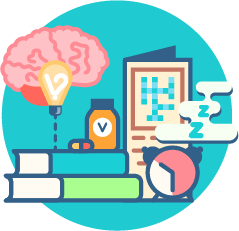
Sleep
Sleep affects the innate and adaptive arms of the body’s defense system and is associated with a reduced infection risk.
How important is sleep then? Prolonged sleep deficiency, including sleep disturbance and short sleep duration, may lead to chronic, systemic low-grade inflammation and is associated with various diseases with an inflammatory component.3
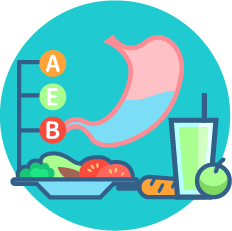
Balanced Diet
The body needs adequate and appropriate nutrition to function optimally.
Eating a balanced diet will provide a more stable mental state as well as support the immune system. Inadequate amounts of the right nutrients may impair immune function.4 The Mediterranean diet is a good example of a diet that supplies broad nutrition; it features a robust bounty of vegetables, nuts, fish, legumes, and healthy fats and is high in polyphenols, which are immunomodulatory and anti-inflammatory.4
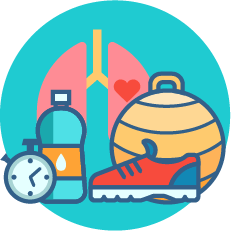
Gentle Exercise
The positive psychological and physiological benefits of exercise include blunting stress reactivity, protecting against potentially adverse behavioral and metabolic consequences of stressful events, and helping to prevent many chronic diseases.
In particular, physical fitness may buffer against stress-related disease because of its modulating effect on hormonal stress-responsive systems, including the HPA axis.5 Gentle exercise, such as yoga, tai chi, walking, and swimming are excellent ways for patients to incorporate activity while reducing stress levels.
Stress-Immune Resilience Through Nutritional Support
Certain individual nutrients and food components influence distinct aspects of the immune system.6 Similarly, the adrenal and endocrine systems can benefit from additional nutritional support during times of stress (without stimulants like caffeine or sugar).
Plant-derived compounds have been utilized by many ancient civilizations to address health issues. Today is no different: plant-based formulations may offer safe and effective options.7 Specialized plants, known as adaptogens, are extracts used to support HPA adaptation, and they may help address the impact of chronic stress. For example, in one study, ashwagandha showed GABAmimetic properties that alleviated anxiety by modulating GABA neurotransmission.8 In another study, rhodiola demonstrated a significant reduction of anxiety in key measures of stress.7
When taken together, herbal extracts can create a complex synergistic interaction to help enhance bioavailability of active components and promote healthful effects.9 A deeper synergistic effect may be realized when these adaptogenic herbs are paired with specific vitamins to further reduce cortisol levels and support energy production.
The Synergistic Support of Adaptogens and Vitamins
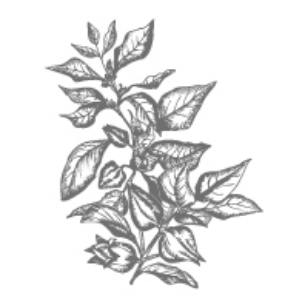
Ashwagandha (Withania somnifera) root extract
As an adaptogen, ashwagandha may substantially improve four measures of stress: perceived stress scale, general health questionnaire, depression anxiety stress scale, and cortisol levels.10 Additionally, ashwagandha root extract may safely and effectively improve an individual’s response to stress and thereby improve self-assessed quality of life.10
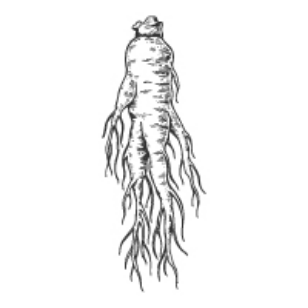
Asian ginseng (Panax ginseng) extract
By supporting normal HPA function, including secretion of cortisol, Panax ginseng shows superior regulation of stress, as compared with that shown by other adaptogens.11 Ginsenosides have multiple physiological effects, including vasorelaxation, anti-inflammation, and anti-proliferation.11
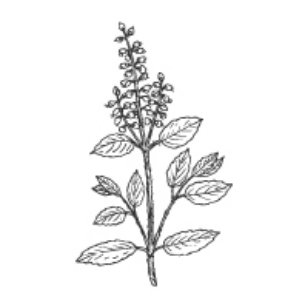
Holy basil (Ocimum tenuiflorum) extract
The leaf of this perennial plant is used for metabolic stress by supporting normalization of blood glucose, blood pressure, and lipid levels. It uniquely addresses physical, chemical, and metabolic stress. Holy basil also supports the body’s response to psychological stress and anxiety through positive effects on memory, cognitive function, and mental health.12
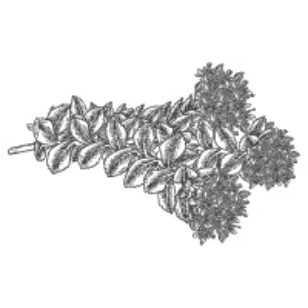
Rhodiola (Rhodiola rosea) root extract
Traditionally used to increase endurance, rhodiola has been shown to exert significant adaptogenic effects, invigorate, and promote antidepressant- and anxiolytic-like effects in animals.13
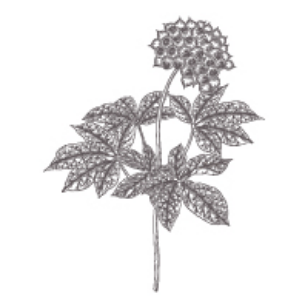
Eleuthero (Eleutherococcus senticosus) root extract
As an adaptogen from the ginseng family, eleuthero has been used in traditional Chinese medicine to reinforce and tonify vital energy, or Qi; invigorate the function of the spleen and kidney; and promote calm. It is traditionally used to address fatigue, weakness, declining work capacity, and concentration.14
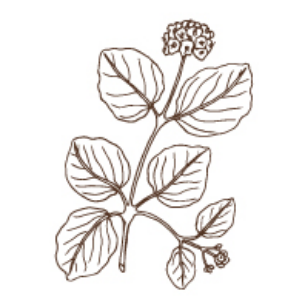
Punarnava (Boerhavia diffusa) root extract
In Ayurveda, this plant is classified as a “rasayana” herb, meaning that it has youth-promoting, life- and brain-strengthening, and immune-supporting effects. The roots, in particular, are a source of a novel class of isoflavonoids.15 In a murine model of stress induced by a swimming endurance test and cold restraint, a root extraction of punarnava was demonstrated to have adaptogenic and immunopotentiating activity.16
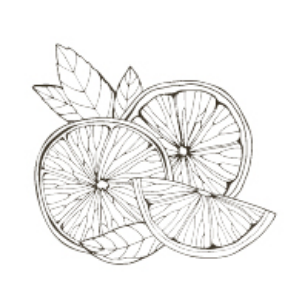
Vitamin C
Shown to reduce cortisol levels in physically or mentally stressed animals and humans, high levels of vitamin C appear helpful against expected mental and physical signs of stress.17
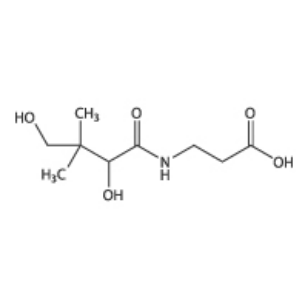
Pantothenic acid
As a component of coenzyme A (CoA), pantothenic acid helps break down carbohydrates, fats, and protein to create usable energy and to support the body’s response to stress.18
By showing your stressed-out patients how to routinely incorporate stress-relieving lifestyle practices, adaptogens, and select vitamins, you can help them regain more balanced HPA axis function. As a result, they may begin to realize relief from worrisome symptoms associated with chronic activation of the stress response. And with better stress response control, patients are likelier to fight off challenges to their immune system.
Related Nutritional Support Formulas
Adaptocrine™
A Stress-Busting Powerhouse in a Capsule*
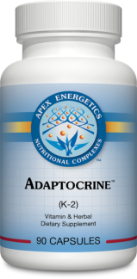
Serotone™ Active
Serotonergic System Support*
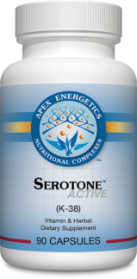
Dopatone™ Active
Dopaminergic System Support*
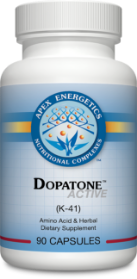
Gabatone™ Active
GABAergic System Support*
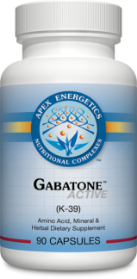
- Dhabhar FS. Enhancing versus suppressive effects of stress on immune function: implications for immunoprotection and immunopathology. Neuroimmunomodulation. 2009;16(5):300-17.
- Stress weakens the immune system. The American Psychological Association. https://www.apa.org/research/action/immune. Accessed April 22, 2020.
- Besedovsky L, Lange T, Haack M. The sleep-immune crosstalk in health and disease. Physiol Rev. 2019;99(3):1325‐80.
- Childs CE, Calder PC, Miles EA. Diet and immune function. Nutrients. 2019;11(8):1933.
- Silverman MN, Deuster PA. Biological mechanisms underlying the role of physical fitness in health and resilience. Interface Focus. 2014;4(5):20140040.
- Albers R, Bourdet-Sicard R, Braun D, et al. Monitoring immune modulation by nutrition in the general population: identifying and substantiating effects on human health. Br J Nutr. 2013 Aug;110(2):1-30.
- Sarris J, McIntyre E, Camfield DA. Plant-based medicines for anxiety disorders, Part 2: A review of clinical studies with supporting preclinical evidence. CNS Drugs 2013;27:301-19.
- Andrade C, Aswath A, Chaturvedi SK, Srinivasa M, Raguram R. A double-blind, placebo-controlled evaluation of the anxiolytic efficacy of an ethanolic extract of Withania somnifera. Indian J Psychiatry. 2000 Jul;42(3):295-301.
- Zhou X, Seto SW, Chang D, et al. Synergistic effects of Chinese herbal medicine: a comprehensive review of methodology and current research. Front Pharmacol. 2016 Jul;7:201.
- Chandrasekhar K, Kapoor J, Anishetty S. A prospective, randomized double-blind, placebo-controlled study of safety and efficacy of a high-concentration full-spectrum extract of ashwagandha root in reducing stress and anxiety in adults. Indian J Psychol Med. 2012 Jul;34(3):255-62.
- Lee S, Rhee DK. Effects of ginseng on stress-related depression, anxiety, and the hypothalamic-pituitary-adrenal axis. J Ginseng Res. 2017 Oct;41(4):589-94.
- Cohen MM. Tulsi – Ocimum sanctum: A herb for all reasons. J Ayurveda Integr Med. 2014 Oct-Dec;5(4):251-59.
- Olsson EM, von Schéele B, Panossian AG. A randomised, double-blind, placebo-controlled, parallel-group study of the standardised extract SHR-5 of the roots of Rhodiola rosea in the treatment of subjects with stress-related fatigue. Planta Med. 2009 Feb;75(2):105-12.
- Clinical overview: eleuthero. ABC Clinical Guide to Herbs. American Botanical Society. http://cms.herbalgram.org/ABCGuide/GuidePDFs/Eleuthero.pdf. Accessed April 16, 2020.
- Mishra S, Aeri V, Gaur PK, Jachak SM. Phytochemical, therapeutic, and ethnopharmacological overview for a traditionally important herb: Boerhavia diffusa Linn. Biomed Res Int. 2014;2014:808302.
- Sumanth M, Mustafa S. Antistress, adoptogenic and immunopotentiating activity roots of Boerhaavia diffusa in mice. Int J Pharmacol. 2007;3(5):416-20.
- Brody S, Preut R, Schommer K, Schürmeyer TH. A randomized controlled trial of high dose ascorbic acid for reduction of blood pressure, cortisol, and subjective responses to psychological stress. Psychopharmacology (Berl). 2002 Jan;159(3):319-24.
- Kelly GS. Nutritional and botanical interventions to assist with adaptations to stress. Alt Med Rev.1999;4(4):249-65.
The nutritional support discussed herein applies to seasonal environmental allergies and should not be used to treat, cure, or prevent acute or chronic food-protein related allergies, such as peanut allergy.


Recent Comments